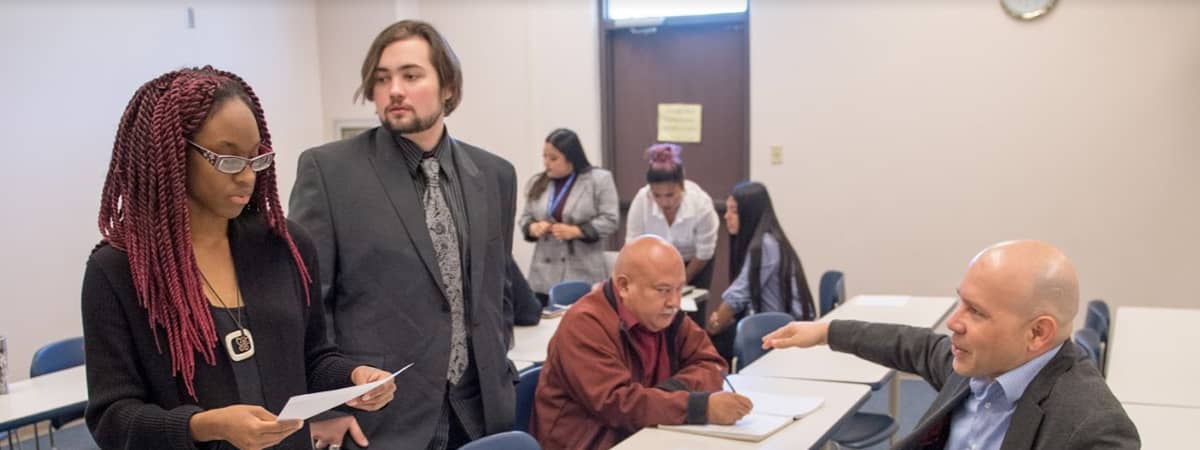Do you love coming up with new business ideas or marketing slogans? Have you considered starting a business for a great idea of your own? If you consider yourself an entrepreneur or see yourself working in business, one of the business program degrees or certificates will set you up for success!
Allan Hancock College’s business program is designed to prepare students for entry-level management and marketing positions. Students will learn how to plan, organize, influence, and control the day-to-day operations of a business organization. Students will acquire the knowledge and skills needed to meet the challenges of today’s modern workforce.
Through work-based learning projects, students will acquire the skills needed to build a business plan for their own startup idea and much more. Successful completion of Hancock’s business program will help students add value to their resume when seeking employment opportunities. Graduates of the program are prepared for entry-level work in fields such as human resources, customer service, leadership, sales, marketing, and more.
The business program offers a variety of degrees and certificates based on different student goals. The multiple degrees and certificates apply important business principles, produce work-based learning projects, and help students to follow oral and written communication. Upon completion of a business degree or certificate, students will be prepared to transfer to a university of their choice for further study.
This program will help you to:
- learn different leadership skills needed to work with a diverse workforce
- understand the elements of a business plan and how to communicate a new startup business
- grasp elements of a marketing plan and how creativity is used to produce successful outcomes
- understand business problems and how to use critical thinking for successful outcomes
- analyze a business organization and explain how to use problem solving skills
- identify multicultural and gender relationships and how to collaborate in a work team culture
- identify teamwork problems and how to analyze and solve them
- describe diversity in the workforce and the strategies used in a successful organization
Degrees and Certificates Offered
Each program has unique requirements. The order in which you take courses may affect your completion time. Visit the links below to view the program requirements and a general semester-by-semester course schedule.
Associate in Science for Transfer - Business Administration 2.0
Associate in Arts - Business Administration
Associate in Science- Applied Professional Studies
Associate in Science- Business: Management
Associate in Science- Business: Marketing
Certificate of Achievement - Business
Certificate of Accomplishment- Business Law
Certificate of Accomplishment - Business: Executive Leadership
Certificate of Accomplishment - Business: Human Resource Management
Certificate of Accomplishment - Business: Sales and Marketing
Certificate of Accomplishment- Business: Supervisory Management
To view all available degrees and certificates visit the Allan Hancock College course catalog.
Programs you may also be interested in exploring:
Contact Information
Department Chair
Marie Comstock
805-922-6966 ext. 3356
mcomstock@hancockcollege.edu
Administrative Assistant
Jayme Meraz
805-922-6966 ext. 3239
jayme.meraz@hancockcollege.edu
Dean, Academic Affairs
Mary Patrick
805-922-6966 ext. 3475
mary.patrick@hancockcollege.edu
Location
Santa Maria Campus
Bldg. K
805-922-6966 ext. 323


